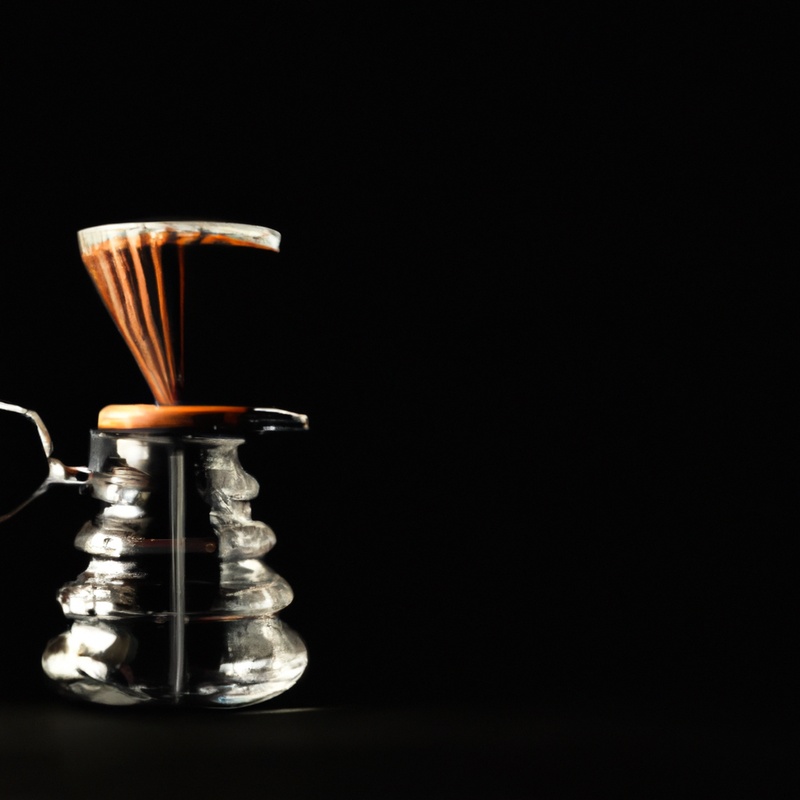Key Takeaways:
- Cold brew coffee typically has lower acidity levels compared to hot brewed coffee.
- The slow extraction process of cold brew coffee reduces the release of acidic compounds.
- Cold brew coffee generally offers a smoother and less acidic taste profile.
- The lower acidity of cold brew coffee may be beneficial for individuals with sensitive stomachs.
Are you tired of the bitter aftertaste and acidity that often comes with a regular cup of coffee?
Well, cold brew coffee might just be the game-changer you’ve been looking for.
In this article, we’ll explore the fascinating world of cold brew coffee and its potential for having less acidity compared to traditional hot brew methods.
We’ll dive into the science behind acidity in coffee, compare acid levels in cold brew and regular coffee, and explore the benefits of opting for a lower acidity coffee experience.
So grab your favorite mug, and let’s explore the delicious and potentially gentler world of cold brew coffee!
| Cold Brew Coffee | Regular Coffee | |
| Acidity Level | Low | High |
| Taste | Smooth and Less Bitter | Strong and Bitter |
| Caffeine Content | Similar or Slightly Higher | Higher |
| Preparation Time | Long (12-24 hours steeping time) | Short (few minutes brewing time) |
| Cost | Generally high due to longer steeping process | Generally lower |
What is Cold Brew Coffee?
Cold brew coffee is a type of coffee that is made by steeping coffee grounds in cold or room temperature water for an extended period of time.
Definition and Process of Cold Brew Coffee
Cold brew coffee is a type of coffee that is steeped in cold water for an extended period, usually between 12 to 24 hours.
The process involves grinding coffee beans coarsely, then combining them with cold water in a container or French press.
After steeping, the mixture is filtered to remove any grounds, resulting in a smooth and less acidic brew.
The slow extraction process of cold brew creates a coffee with a milder and less bitter taste compared to traditional hot brewed coffee.
Benefits and Popularity of Cold Brew Coffee
Benefits of Cold Brew Coffee:
- Lower acidity: Cold brew coffee is known for its lower acidity levels compared to traditional brewed coffee, which provides a smoother and less harsh taste.
- Enhanced flavor: The slow and prolonged steeping process of cold brew coffee allows for a more concentrated flavor profile, highlighting the natural sweetness and chocolatey notes.
- Reduced bitterness: Cold brew coffee contains fewer bitter compounds due to the lack of heat in the brewing process, resulting in a more balanced and mellow flavor.
Popularity of Cold Brew Coffee:
- Refreshing and versatile: Cold brew coffee can be enjoyed straight over ice or used as a base for various beverages like iced lattes, mochas, or even coffee cocktails.
- Convenience: Cold brew coffee can be prepared in advance and stored in the refrigerator for up to a week, making it a convenient option for those who like to grab-and-go.
- Health-conscious choice: With its lower acidity, cold brew coffee is often favored by individuals who experience digestive issues or are sensitive to the effects of caffeine. Additionally, it can be a healthier alternative to sugary, flavored drinks.
Understanding Acidity in Coffee
Acidity in coffee is an important component of its flavor profile.
Factors Affecting Acidity in Coffee
Factors that can affect the acidity in coffee include:
- The type of coffee beans used: Different coffee beans have varying levels of acidity.
- The roasting process: Lighter roasts tend to have higher acidity, while darker roasts have lower acidity.
- Brewing method: Certain methods, like cold brew, can result in a less acidic coffee compared to traditional brewing methods.
- Water quality: The pH and mineral content of the water used in brewing can impact the acidity of the final cup.
- Storage conditions: Exposure to air and high temperatures can increase the acidity of coffee over time.
The Role of Acidity in Coffee Flavor
Acidity plays a critical role in the flavorful experience of coffee. It adds brightness, liveliness, and vibrancy to the brew.
When acidity is well-balanced, it complements the other flavors and enhances the overall taste.
It can bring out fruity, citrusy, or wine-like notes, giving coffee a refreshing and complex character. However, too much acidity can make coffee taste sour or sharp.
Finding the right balance is key to enjoying a delicious cup of coffee.
Comparing Acid Levels in Cold Brew and Regular Coffee
Cold brew coffee generally has lower acidity levels compared to regular coffee, making it a more gentle option for those with sensitive stomachs.
Acidic Compounds in Coffee and their Effect on Acidity
Acidic compounds in coffee, such as chlorogenic acid and quinic acid, contribute to its overall acidity.
These compounds can affect the flavor profile of coffee, making it more bright and tangy.
However, they can also lead to stomach irritation or acid reflux in some individuals.
If you find regular coffee too acidic for your taste or if it causes discomfort, you may want to consider trying cold brew coffee, which tends to have lower acidity levels.
Cold brewing methods can help reduce the extraction of acidic compounds, resulting in a smoother and less acidic cup of coffee.
Difference in Brewing Methods between Cold Brew and Regular Coffee
The main difference in brewing methods between cold brew and regular coffee lies in the extraction process. With regular coffee, hot water is used to quickly extract the flavors and oils from the ground coffee beans.
This typically results in a more acidic and bitter taste.
On the other hand, cold brew is made by steeping the coffee grounds in cold water for an extended period of time, usually 12 to 24 hours. This slow extraction process creates a smoother, less acidic, and less bitter coffee concentrate.

Comparing Acidity Levels in Cold Brew and Regular Brew
The acidity levels in cold brew and regular brew coffee differ.
Cold brew coffee typically has lower acidity compared to regular brew.
The cold brewing process involves steeping coffee grounds in cold or room temperature water for an extended period, usually 12 to 24 hours.
This slow extraction method results in a smoother, less acidic cup of coffee.
Regular brew coffee, on the other hand, involves hot water passing through ground coffee quickly, which can lead to higher acidity levels.
So, if you prefer a less acidic coffee, cold brew might be the way to go.
Does Cold Brew Coffee Have Less Acidity?
Cold brew coffee tends to have less acidity compared to traditional hot brewed coffee, but the exact levels can vary.
Scientific Studies on Acidity Levels in Cold Brew Coffee
Scientific studies have shown that cold brew coffee has lower acidity levels compared to hot brewed coffee. These studies have found that the cold brewing process extracts fewer acidic compounds from the coffee beans, resulting in a smoother and less acidic taste.
One study published in the scientific journal Food Research International found that cold brew coffee had significantly lower pH values than hot brewed coffee, indicating reduced acidity.
Another study in the Journal of Food Science found that cold brew coffee had about 67% less acidity than hot brewed coffee. So, if you want a less acidic coffee experience, cold brew can be a great option for you.
Expert Opinions and Taste Testimonials
Expert Opinions:
- Coffee experts generally agree that cold brew coffee has less acidity compared to hot brewed coffee.
- Cold brew coffee is said to have a smoother and milder flavor profile, which is often attributed to its lower acidity levels.
- Many coffee connoisseurs believe that the lower acidity in cold brew makes it easier on the stomach and less likely to cause heartburn.
Taste Testimonials:
- Cold brew coffee enthusiasts often describe its taste as rich, smooth, and less bitter compared to traditional hot brewed coffee.
- Some people even find cold brew coffee to be naturally sweeter without the need for added sugar or cream.
- Many individuals who have tried both hot and cold brew coffee prefer the smoother and less acidic taste of cold brew.
Overall, expert opinions and taste testimonials suggest that cold brew coffee typically has less acidity and a smoother flavor profile, making it an appealing option for those who prefer a milder and less bitter coffee experience.

Consumer Experiences and Personal Preferences
Consumer experiences and personal preferences play a significant role when it comes to coffee choices.
Some people enjoy the smoothness and lower acidity of cold brew coffee, finding it easier on their stomachs and teeth.
Others may prefer the traditional hot coffee for its bold flavors and higher acidity.
It ultimately comes down to individual taste and how the coffee is enjoyed.
So, whether you prefer cold brew or hot coffee, the choice is all about what satisfies your palate.

Benefits of Drinking Cold Brew Coffee with Lower Acidity
Drinking cold brew coffee with lower acidity offers benefits such as reduced digestive issues and heartburn.
It can also help protect your teeth enamel and provide a more enjoyable flavor profile with less bitterness.
Reduced Digestive Issues and Heartburn
Reduced Digestive Issues and Heartburn: Cold brew coffee, with its lower acidity, can be gentler on your stomach, making it a great choice if you struggle with digestive issues or heartburn.
The slow brewing process extracts less of the compounds that can irritate your stomach, resulting in a smoother and less acidic cup of coffee.
By opting for cold brew, you may find that you can enjoy your morning caffeine fix without experiencing the discomfort often associated with traditional hot brewed coffee.
Gentler on Teeth Enamel
Gentler on Teeth Enamel Cold brew coffee is gentler on your teeth enamel compared to hot brewed coffee.
This is because the brewing process of cold brew coffee involves steeping the coffee grounds in cold or room temperature water for an extended period of time.
This results in a lower acidic content in the final brew, which is better for your teeth enamel.
So, if you’re worried about protecting your teeth, cold brew coffee is a great choice.
Enhanced Flavor Profile and Reduced Bitterness
Drinking cold brew coffee can offer an enhanced flavor profile and reduced bitterness compared to traditional hot brewed coffee.
The slow steeping process of cold brewing extracts the flavors from the coffee beans in a smoother and more balanced way.
This results in a rich, mellow taste with less acidity, which minimizes the bitter aftertaste commonly associated with hot brewed coffee.
As a result, cold brew coffee can be a great option for those who prefer a smoother, less acidic coffee experience.
How to Make Cold Brew Coffee with Less Acidity
To make cold brew coffee with less acidity, choose beans with lower acidity levels, adjust your brewing time and temperature, and experiment with different ratios and filter methods.
Choosing the Right Beans for Lower Acidity
When it comes to choosing the right beans for lower acidity in your cold brew coffee, there are a few factors to consider.
Look for beans that are naturally low in acidity, such as Brazilian or Sumatran beans.
Lighter roasts also tend to have higher acidity, so opt for medium or dark roasts instead.
Additionally, consider beans that have been specifically labeled as low acid or smooth.
Experiment with different types and roasts to find the flavor profile that suits your taste buds best.
Adjusting Brewing Time and Temperature
To adjust the brewing time and temperature for cold brew coffee, you have a few options.
First, you can increase the brewing time to extract more flavors and reduce acidity.
Second, you can decrease the brewing temperature to minimize the extraction of acidic compounds.
Experiment with different combinations to find the taste you prefer.
Remember, adjusting brewing time and temperature is a personal preference and may require some trial and error.
Experimenting with Different Ratios and Filter Methods
Experimenting with different ratios and filter methods is key to finding the perfect cold brew coffee recipe.
Start by adjusting the coffee-to-water ratio to achieve your desired strength.
For a smoother, less acidic taste, try using a higher coffee-to-water ratio.
Next, consider your filter method.
A fine-mesh sieve can work, but for even less acidity, try using a paper filter or a cold brew-specific filter.
These methods help remove more of the coffee oils that contribute to acidity.
So, get creative and find your ideal combination for a delicious, low-acid cold brew!
Frequently Asked Questions
Can I Add Milk or Sugar to Cold Brew Coffee with Lower Acidity?
Yes, you can absolutely add milk or sugar to cold brew coffee with lower acidity. Cold brew coffee already has a milder and less acidic flavor compared to traditional hot brewed coffee, so adding milk or sugar should not significantly affect the acidity level.
Feel free to customize your cold brew with your preferred amount of milk or sugar to enhance the taste according to your preference.
It’s all about enjoying your coffee just the way you like it!
Is Cold Brew Coffee Healthier than Regular Coffee?
Is Cold Brew Coffee Healthier than Regular Coffee?
Cold brew coffee can be considered healthier than regular coffee due to the lower acidity levels.
The steeping process of cold brew results in a smoother, less bitter taste, which can be gentler on the stomach and teeth.
Additionally, cold brew usually contains less caffeine, making it a better option for those who are sensitive to its effects.
However, it’s important to note that the health benefits of coffee, including cold brew, depend on the individual and their overall lifestyle.
Moderation is key!
How Long Does Cold Brew Coffee Last?
Cold brew coffee can last up to two weeks when stored properly in the refrigerator.
The low acidity of cold brew helps in preserving its freshness for a longer time compared to traditional hot brewed coffee.
To make your cold brew last longer, store it in an airtight container and keep it chilled.
Enjoy your smooth and refreshing cold brew anytime within the recommended time frame.
Can I Reheat Cold Brew Coffee?
Yes, you can reheat cold brew coffee if you prefer it warm.
However, keep in mind that reheating may affect the taste and quality of the coffee, as it can become bitter or lose some of its flavor.
To reheat, simply pour the cold brew into a microwave-safe container and heat it in short intervals, stirring in between, until it reaches your desired temperature.
Alternatively, you can use a saucepan on the stove or a coffee maker with a warming plate.
Just be careful not to overheat it, as that can also impact the taste.
Final Verdict
Cold brew coffee is a popular beverage known for its smooth and less acidic flavor profile.
The method of steeping coarsely ground coffee beans in cold water for an extended period of time results in a lower acidity compared to regular brewed coffee.
Scientific studies and expert opinions have supported this claim, and many coffee enthusiasts have reported enjoying the benefits of reduced digestive issues, gentler impact on teeth, and enhanced flavor with less bitterness.
To make cold brew coffee with lower acidity, choose beans with lower acid content, adjust the brewing time and temperature, and experiment with different ratios and filter methods.
Overall, cold brew coffee offers a delicious and enjoyable alternative for those seeking a less acidic coffee experience.
